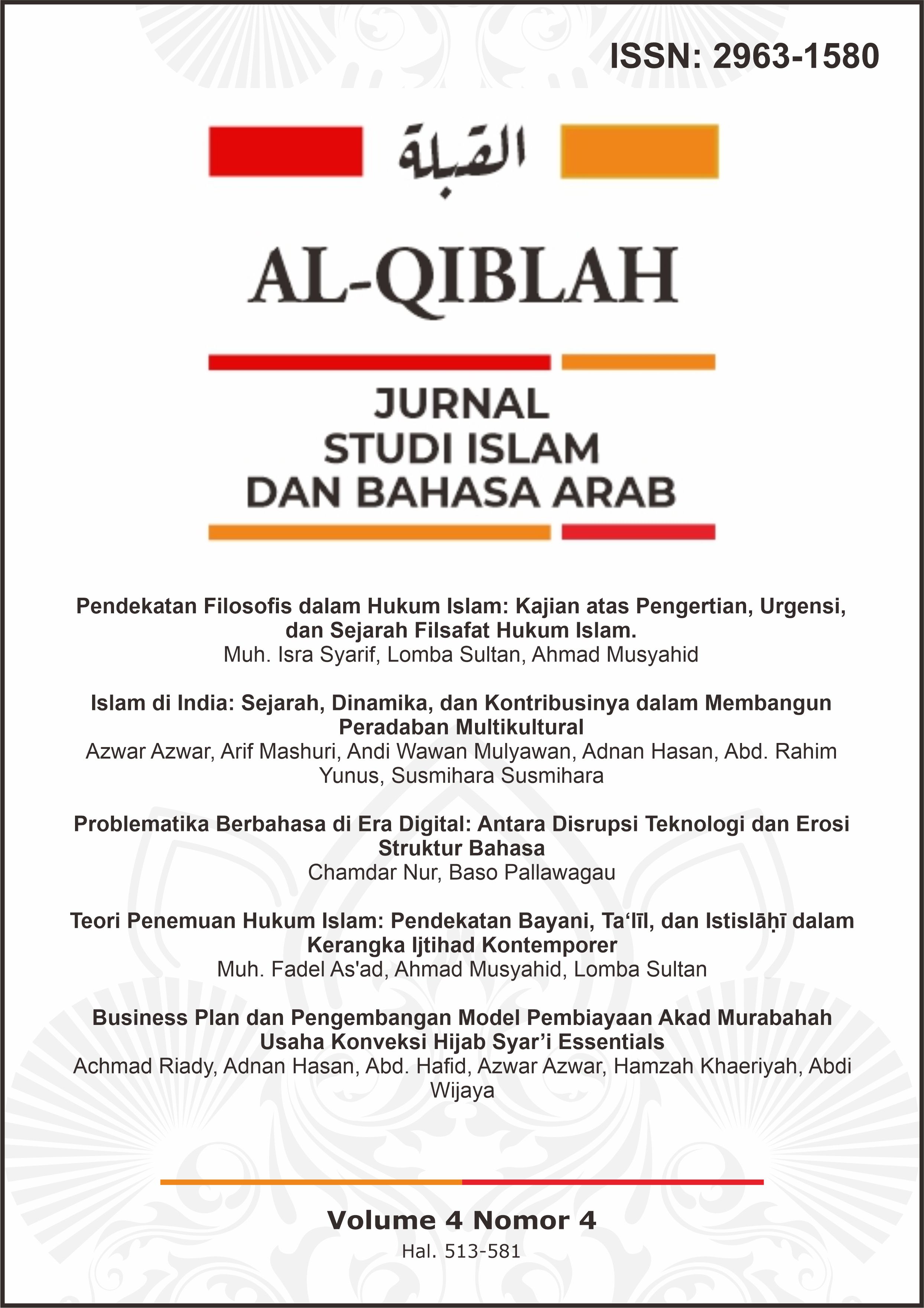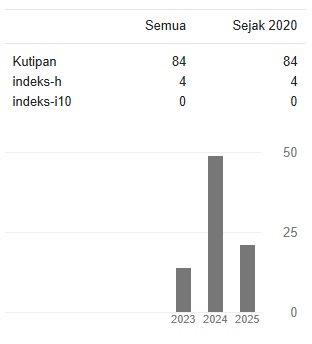Teori Penemuan Hukum Islam: Pendekatan Bayani, Ta‘līl, dan Istislāḥī dalam Kerangka Ijtihad Kontemporer
The Theory of Islamic Legal Discovery: Bayani, Ta‘līl, and Istislāḥī Approaches within the Framework of Contemporary Ijtihād
DOI:
https://doi.org/10.36701/qiblah.v4i4.2319Keywords:
Bayani, Ta‘līl, Istislāḥī, Islamic Legal Theory, Ijtihād, Maqāṣid.Abstract
The discovery of Islamic law is an epistemological process that involves the interaction between divine revelation and human reasoning in responding to legal challenges. This study examines three primary approaches in the philosophy of Islamic legal discovery: the Bayani theory, the Ta‘līl theory, and the Istislāḥī theory. The Bayani theory relies on the authority of textual language and its linguistic structure as the foundation of legal derivation. The Ta‘līl theory emphasizes the identification of the ‘illah (effective cause) as the rational basis behind legal rulings. Meanwhile, the Istislāḥī theory is oriented toward achieving public interest (maṣlaḥah) and the objectives of Islamic law (maqāṣid al-sharī‘ah) in formulating context-sensitive legal norms. This research employs a qualitative approach through literature analysis of classical works such as Al-Risālah, Al-Mustasfā, and Al-Muwāfaqāt, complemented by contemporary scholarship including Hashim Kamali, Wael B. Hallaq, and Jasser Auda. The findings suggest that these three theories are not mutually exclusive; rather, they complement one another in forming a comprehensive methodology of legal discovery. In today’s context, the integration of these approaches is essential to generate legal reasoning that is both responsive to socio-legal realities and firmly rooted in the principles of Islamic law. Thus, the philosophy of legal discovery in Islam offers a framework that is not only textual and rational, but also transformative in addressing the demands of modern times.
Downloads
References
Al-Ghazali, Abu Hamid. Al-Mustasfa min ‘Ilm al-Usul. Cairo: Al-Maktabah al-Tijariyyah al-Kubra, 1993.
Al-Qaradawi, Yusuf. Fiqh al-Awlawiyyat. Cairo: Maktabah Wahbah, 1995.
Al-Syatibi, Abu Ishaq. Al-Muwafaqat fi Usul al-Shari‘ah. Edited by Abu Ubaydah Mashhur bin Hasan. Riyadh: Maktabah al-Tawbah, 1997.
Anwar, Syamsul. “Problematika Fatwa MUI tentang Cryptocurrency.” Jurnal Hukum Islam 18, no. 2 (2020): 231–248.
Auda, Jasser. Maqasid al-Shariah as Philosophy of Islamic Law: A Systems Approach. London: International Institute of Islamic Thought (IIIT), 2008.
Hallaq, Wael B. A History of Islamic Legal Theories: An Introduction to Sunni Usul al-Fiqh. Cambridge: Cambridge University Press, 1997.
Kamali, Mohammad Hashim. Principles of Islamic Jurisprudence. Cambridge: Islamic Texts Society, 2003.
Khallaf, ‘Abd al-Wahhab. ‘Ilm Usul al-Fiqh. Kuwait: Dar al-Qalam, 1978.
Raysuni, Ahmad al-. Nazariyyat al-Maqasid ‘inda al-Imam al-Shatibi. Beirut: Al-Mu’assasah al-Jami‘iyyah, 1995.
Syafi‘i, Muhammad ibn Idris al-. Al-Risalah. Edited by Ahmad Muhammad Shakir. Beirut: Dar al-Ma‘rifah, 1990.
Downloads
Published
Issue
Section
License
Copyright (c) 2025 Muh. Fadel As'ad, Ahmad Musyahid, Lomba Sultan

This work is licensed under a Creative Commons Attribution-NonCommercial-ShareAlike 4.0 International License.



 FOCUS AND SCOPE
FOCUS AND SCOPE EDITORIAL TEAM
EDITORIAL TEAM












